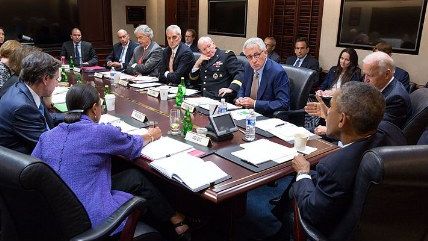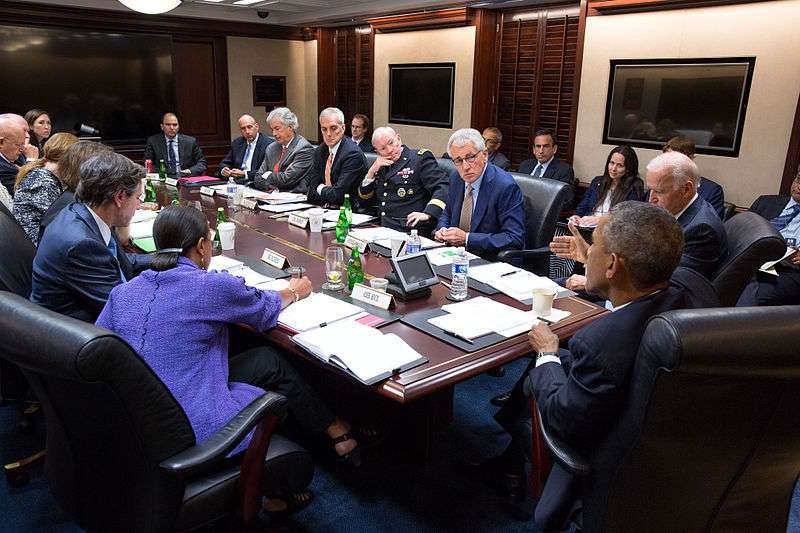Obama Administration to Expand Sharing of NSA Data from Snooping
This is why you shouldn't accept the FBI's 'just one phone' decryption argument.


At the same time that Republican candidates at last night's debate were signing on to the FBI's claim (a completely untrue claim) that they only wanted to force Apple to help them access a single phone, Charlie Savage at The New York Times was reporting a plan by the Obama administration to increase the number of people and government agencies allowed to review data collected by the National Security Agency (NSA).
While these two issues are not directly connected, it's an important reminder that when you're dealing with the government (or any large institution) whatever authority it is granted is bound to expand whenever possible. And in this case, it's actually likely a direct result of intelligence agencies trying to do a better job of evaluating the information that it collects, something that has been a consistent problem in anti-terror efforts. It's not that the government isn't getting the right information; it's not sharing the information with the right people.
But the problem is that—because we are now aware that the NSA has been collecting absurd amounts of data about American citizens "incidentally" as part of its anti-terror efforts—such a plan potentially means more eyeballs may end up looking at private information about you and me:
The change would relax longstanding restrictions on access to the contents of the phone calls and email the security agency vacuums up around the world, including bulk collection of satellite transmissions, communications between foreigners as they cross network switches in the United States, and messages acquired overseas or provided by allies.
The idea is to let more experts across American intelligence gain direct access to unprocessed information, increasing the chances that they will recognize any possible nuggets of value. That also means more officials will be looking at private messages — not only foreigners' phone calls and emails that have not yet had irrelevant personal information screened out, but also communications to, from, or about Americans that the N.S.A.'s foreign intelligence programs swept in incidentally.
Civil liberties advocates criticized the change, arguing that it will weaken privacy protections. They said the government should disclose how much American content the N.S.A. collects incidentally — which agency officials have said is hard to measure — and let the public debate what the rules should be for handling that information.
"Before we allow them to spread that information further in the government, we need to have a serious conversation about how to protect Americans' information," said Alexander Abdo, an American Civil Liberties Union lawyer.
What will happen under this new system is that the NSA will be able to allow other federal agencies (like the CIA and FBI) raw access to surveillance data that has not had "irrelevant" information about American citizens who are not suspected of any sort of criminal behavior masked or redacted. The current system puts the NSA in charge of deciding what to share and requires them to mask information incidentally swept up by surveillance.
The Obama Administration has been working on this plan since 2009 (though it was authorized initially by an executive order by George W. Bush in 2008). I imagine it never occurred to them that Americans would discover how much of this information is about us, not suspected terrorists; otherwise this probably wouldn't have even been a story. Thanks again, Edward Snowden!


Show Comments (6)